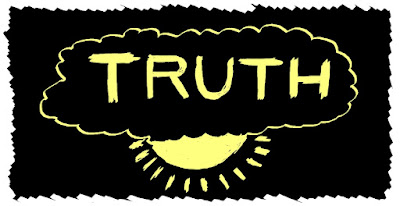In a normal and healthy polity, one can accept the word of the state as factual. However, as failings mount, it becomes impossible to actually maintain that trust.
If we are determined to be sceptics, then, in all cases, what officials said can only really be evidence of what they have said. It can be reported accurately as the rationale behind their decisions, and whether we adhere to the narrative might be considered evidence of loyalty to the state, at least until evidence emerges that the state is mistaken.
The word of Uncle Sam as ultimate truth
In a verbal duel with journalist Matt Lee of the Associated Press, US State Department spokesperson Ned Price insisted that the US government can be accepted as an honest source of information. Specifically, Ned Price wanted his far-fetched allegations about a Russian false-flag operation in Ukraine, including references to unpublished and undisclosed video evidence, to be reported by the press as facts.
Looking at the journalist as if he was crazy, Price suggested that the words he (Price) was uttering may be printed by Lee onto a piece of paper, and that this paper can then be given as evidence. When told that he had presented no evidence, a flustered Price went on to claim that not believing his classified US sources would be tantamount to adoration towards Russian propaganda.
Obvious baloney
Not only is there valid reason to doubt Ned Price's honesty, but there are clear indications he and his organisation were lying.
Explicit references by Price to video media, accompanied by no release of such video media, indicate deliberate dishonesty of the same type most of us already know as "clickbait". An honest source that could only give its word would not speak words about a video. Such a source would instead admit that it can only give its word, hand on heart. To speak otherwise, and make reference to specific undisclosed video, is a tactical move aiming to deceive, like offering a preview of a video to an audience, only to then provide a narrating voice throughout the actual file.
This reference to video evidence that won't be released is clearly intended with cynicism. The aim is to mislead those who glance headlines in our busy age into mistakenly thinking video evidence exists that they just don't have time to look at. Without a video, someone wants you to react as if there is a video. Ask yourself, is such a tactic typical of authentic behaviour, or is it in fact deliberate dishonesty and manipulation, in keeping with the character of liars?
Flipflopping on command
As soon as the CIA deems something to be acceptable, all American institutions and journalistic outfits immediately start saying it is acceptable, ultimately making reference to it being the CIA's wish. Wikipedia cites US intelligence officials as arbiters of fact, ignoring any need for independent confirmation. For them, it is America first, and all other countries' points of view are rejected as disinformation. Fact-checkers then rely on this US-aligned source to distinguish fact from falsehood, which is then used to inform labelling on social media platforms.
In the case of the Wuhan lab leak theory, which is still unconfirmed, it was originally labelled as false while the CIA did not agree with it. As soon as US intelligence officials began stating that it was credible, the label was lifted by international media and social media platforms and the story was considered credible.
Are liars reliable sources?
Unfortunately, the CIA and NSA have a clearly established record of telling lies, as in the case of the Iraq War and mass collection of Americans' data. The targets of these lies are often the American public and even elected officials, as the CIA tries to disseminate whatever it finds expedient or in its interests for you to believe.
Ned Price formerly worked for the CIA, as did many of the venerated and undisputed heroes of current American foreign policy. Sordid organisations with dark pasts, committed to lies and omission, devoted to the prosecution, defamation and torture of journalists, are presented to Americans as windows into all truth about the reality they inhabit.



